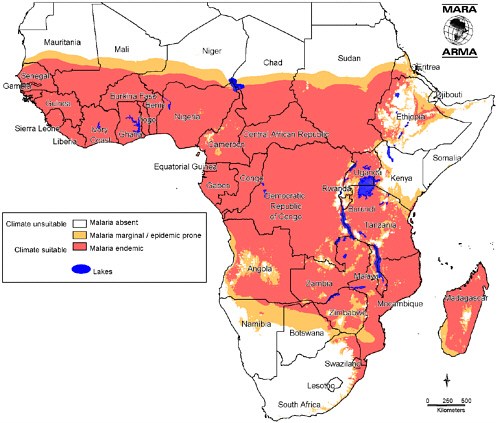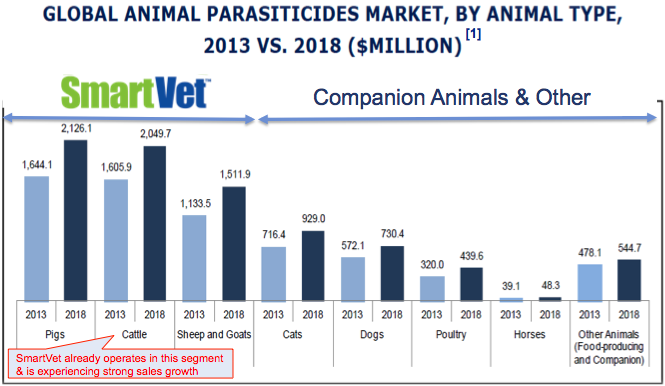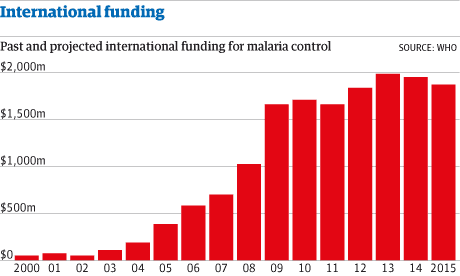Theme: Addressing New Challenges and Emerging Issues in Parasitology
Parasitology 2017
Conferencesseries invites all the participants from all over the world to attend '4th International Conference on Parasitology' during September 01-02, 2017 in Prague, Czech Republic which includes prompt keynote presentations, Oral talks, Poster presentations and Exhibitions.
- Parasitology Students, Scientists
- Parasitology Researchers
- Parasitology Faculty
- Medical Colleges
- Parasitology Associations and Societies
- Business Entrepreneurs
- Training Institutes
- Manufacturing Medical Devices Companies
ConferenceSeries Ltd invites all the participants from all over the world to attend '4th International Conference on Parasitology' during September 01-02, 2017 in Prague, Czech Republic which includes prompt keynote presentations, Oral talks, Poster presentations and Exhibitions.
Parasitology-2017 is to gathering people in academia and society interested in parasitology to share the latest trends and important issues relevant to our field/subject area. The scientific program of the conference is broad and embraces different research aspects with focus on applied and ecological Parasitology, and in particular with a veterinary and medical interest. The conference will include invited speakers, oral presentations, poster session and the young scientist award.
Track 1: Parasitology
Parasitic infections/worms can be studied from many angles: we can focus on the parasites, their hosts, the environments they share and the ways in which they interact. People working in this field come from numerous backgrounds, including zoology, physiology, biochemistry, immunology, molecular biology, pharmacology, ecology, economics, anthropology, sociology, engineering, agriculture, education, mathematics and, of course, human and veterinary medicine. Specific disciplines focus on specific aspects, thus parasitological knowledge may be fragmentary.
Related Conferences
American Association of Veterinary Parasitologists meeting, August 6-9, 2017 San Antonio; 35th UC Davis Annual Infectious Diseases Conference 2017 February 3-4, 2017 Holiday Inn Sacramento Downtown – Arena Sacramento, California; 24th Conference on Retroviruses and Opportunistic Infections 2017 February 13, 2017 - February 16, 2017 Seattle, United States; Keystone Symposia - Malaria: from Innovation to Eradication 2017 February 19, 2017 - February 23, 2017 Kampala, Uganda; Viral Immunity: Mechanisms and Consequences 2017 February 19, 2017 - February 23, 2017 Keystone, Colorado, United States; Nordic Society of Clinical microbiology and Infectious Diseases 34th Annual Meeting 2017 August 31, 2017 - September 2, 2017 Torshavn, Faroe Islands; 4th International Conference on Prevention & Infection Control 2017 June 20, 2017 - June 23, 2017 Geneva, Switzerland; Spanish Society of Clinical Microbiology and Infectious Diseases 21st Congress 2017; May 10, 2017 - May 13, 2017 Malaga, Spain; Canadian Association for Clinical Microbiology and Infectious Diseases Annual Conference 2017 May 3, 2017 - May 6, 2017 Toronto, Canada; 27th European Congress of Clinical Microbiology and Infectious Diseases 2017 April 22, 2017 - April 25, 2017 Vienna, Austria; 8th European Immunology Conference June 29-July 01, 2017 Madrid, Spain; 2nd International Conference on Autoimmunity November 09-10, 2017 Madrid, Spain; 8th Molecular Immunology and Immunogenetics Congress March 20-21, 2017 Rome, Italy; 3rd World Conference on Parasitology & Pathogenicity July 12-13, 2017 Chicago, Illinois, USA; 9th Immunity, Inflammation and Immunotherapies November 02-03, 2017 Atlanta, Georgia, USA; 6th Euro- Global Conference on Infectious Diseases September 7-9, 2017 Paris, France; International Conference on Vector Borne Diseases June 29-30, 2017 Philadelphia, USA
Track 2: Medical Parasitology:
Medical parasitology traditionally has included the study of three major groups of animals: parasitic protozoa, parasitic helminths (worms), and those arthropods that directly cause disease or act as vectors of various pathogens. A parasite is a pathogen that simultaneously injures and derives sustenance from its host. Some organisms called parasites are actually commensals, in that they neither benefit nor harm their host (for example, Entamoeba coli). Although parasitology had its origins in the zoologic sciences, it is today an interdisciplinary field, greatly influenced by microbiology, immunology, biochemistry, and other life sciences.A misconception about Parasitic worms is that they occur only in tropical areas. Although most parasitic infections are more prevalent in the tropics, many people in temperate and subtropical areas also become infected, and visitors to tropical countries may return with a parasite infection.
Related Conferences:
American Association of Veterinary Parasitologists meeting, August 6-9, 2017 San Antonio; 35th UC Davis Annual Infectious Diseases Conference 2017 February 3-4, 2017 Holiday Inn Sacramento Downtown – Arena Sacramento, California; 24th Conference on Retroviruses and Opportunistic Infections 2017 February 13, 2017 - February 16, 2017 Seattle, United States; Keystone Symposia - Malaria: from Innovation to Eradication 2017 February 19, 2017 - February 23, 2017 Kampala, Uganda; Viral Immunity: Mechanisms and Consequences 2017 February 19, 2017 - February 23, 2017 Keystone, Colorado, United States; Nordic Society of Clinical microbiology and Infectious Diseases 34th Annual Meeting 2017 August 31, 2017 - September 2, 2017 Torshavn, Faroe Islands; 4th International Conference on Prevention & Infection Control 2017 June 20, 2017 - June 23, 2017 Geneva, Switzerland; Spanish Society of Clinical Microbiology and Infectious Diseases 21st Congress 2017; May 10, 2017 - May 13, 2017 Malaga, Spain; Canadian Association for Clinical Microbiology and Infectious Diseases Annual Conference 2017 May 3, 2017 - May 6, 2017 Toronto, Canada; 27th European Congress of Clinical Microbiology and Infectious Diseases 2017 April 22, 2017 - April 25, 2017 Vienna, Austria; 8th European Immunology Conference June 29-July 01, 2017 Madrid, Spain; 2nd International Conference on Autoimmunity November 09-10, 2017 Madrid, Spain; 8th Molecular Immunology and Immunogenetics Congress March 20-21, 2017 Rome, Italy; 3rd World Conference on Parasitology & Pathogenicity July 12-13, 2017 Chicago, Illinois, USA; 9th Immunity, Inflammation and Immunotherapies November 02-03, 2017 Atlanta, Georgia, USA; 6th Euro- Global Conference on Infectious Diseases September 7-9, 2017 Paris, France; International Conference on Vector Borne Diseases June 29-30, 2017 Philadelphia, USA
Track 3: Veterinary Parasitology
Parasites are responsible for major economic losses in food–producing animals and are important in companion animals. We are able to offer a wide range of services for the study of ectoparasites and endoparasites in both groups.
Parasitic models
· Ectoparasites, including fleas, ticks and biting flies
· Endoparasites, including lung worms and intestinal nematodes
· Species covered include cattle, sheep, goats, camelids, poultry, pigs, horses, dogs and cats
Related Conferences:
American Association of Veterinary Parasitologists meeting, August 6-9, 2017 San Antonio; 35th UC Davis Annual Infectious Diseases Conference 2017 February 3-4, 2017 Holiday Inn Sacramento Downtown – Arena Sacramento, California; 24th Conference on Retroviruses and Opportunistic Infections 2017 February 13, 2017 - February 16, 2017 Seattle, United States; Keystone Symposia - Malaria: from Innovation to Eradication 2017 February 19, 2017 - February 23, 2017 Kampala, Uganda; Viral Immunity: Mechanisms and Consequences 2017 February 19, 2017 - February 23, 2017 Keystone, Colorado, United States; Nordic Society of Clinical microbiology and Infectious Diseases 34th Annual Meeting 2017 August 31, 2017 - September 2, 2017 Torshavn, Faroe Islands; 4th International Conference on Prevention & Infection Control 2017 June 20, 2017 - June 23, 2017 Geneva, Switzerland; Spanish Society of Clinical Microbiology and Infectious Diseases 21st Congress 2017; May 10, 2017 - May 13, 2017 Malaga, Spain; Canadian Association for Clinical Microbiology and Infectious Diseases Annual Conference 2017 May 3, 2017 - May 6, 2017 Toronto, Canada; 27th European Congress of Clinical Microbiology and Infectious Diseases 2017 April 22, 2017 - April 25, 2017 Vienna, Austria; 8th European Immunology Conference June 29-July 01, 2017 Madrid, Spain; 2nd International Conference on Autoimmunity November 09-10, 2017 Madrid, Spain; 8th Molecular Immunology and Immunogenetics Congress March 20-21, 2017 Rome, Italy; 3rd World Conference on Parasitology & Pathogenicity July 12-13, 2017 Chicago, Illinois, USA; 9th Immunity, Inflammation and Immunotherapies November 02-03, 2017 Atlanta, Georgia, USA; 6th Euro- Global Conference on Infectious Diseases September 7-9, 2017 Paris, France; International Conference on Vector Borne Diseases June 29-30, 2017 Philadelphia, USA
Track 4: Experimental Immunoparasitology
Immunoparasitology is "the study of the immunology of host-parasite relationships". Parasites are pathogens that simultaneously injure and derive sustenance from its host. They are skilled evaders of host immunity of host pathogen interactions. Parasites are the organisms that complete part or all of their life cycle within a host organism. Infections of humans caused by parasites number in billions and range from relatively innocuous to fatal. The diseases caused by these parasites constitute major human health problems throughout the world. The incidence of many parasitic infections (eg. schistosomiasis, malaria) have increased rather than decreased in recent years. Other parasitic illnesses have increased in importance as a result of the AIDS epidemic (eg., cryptosporidiosis, Pneumocystis carinii pneumonia, and strongyloidiasis).Like other pathogens, parasites must survive in the face of a highly potent immune system. Over millions of years of evolution, they succeed in this through a great diversity of strategies for avoiding immune detection, suppressing cellular immunity and deflecting immune attack mechanisms.Similarly hosts have evolved resistance in various ways to overcome their entry and existence. Host- parasite interactions provide fascinating examples of evolutionary 'arms-races' in which the immune system plays a key role.
Related Conferences:
American Association of Veterinary Parasitologists meeting, August 6-9, 2017 San Antonio; 35th UC Davis Annual Infectious Diseases Conference 2017 February 3-4, 2017 Holiday Inn Sacramento Downtown – Arena Sacramento, California; 24th Conference on Retroviruses and Opportunistic Infections 2017 February 13, 2017 - February 16, 2017 Seattle, United States; Keystone Symposia - Malaria: from Innovation to Eradication 2017 February 19, 2017 - February 23, 2017 Kampala, Uganda; Viral Immunity: Mechanisms and Consequences 2017 February 19, 2017 - February 23, 2017 Keystone, Colorado, United States; Nordic Society of Clinical microbiology and Infectious Diseases 34th Annual Meeting 2017 August 31, 2017 - September 2, 2017 Torshavn, Faroe Islands; 4th International Conference on Prevention & Infection Control 2017 June 20, 2017 - June 23, 2017 Geneva, Switzerland; Spanish Society of Clinical Microbiology and Infectious Diseases 21st Congress 2017; May 10, 2017 - May 13, 2017 Malaga, Spain; Canadian Association for Clinical Microbiology and Infectious Diseases Annual Conference 2017 May 3, 2017 - May 6, 2017 Toronto, Canada; 27th European Congress of Clinical Microbiology and Infectious Diseases 2017 April 22, 2017 - April 25, 2017 Vienna, Austria; 8th European Immunology Conference June 29-July 01, 2017 Madrid, Spain; 2nd International Conference on Autoimmunity November 09-10, 2017 Madrid, Spain; 8th Molecular Immunology and Immunogenetics Congress March 20-21, 2017 Rome, Italy; 3rd World Conference on Parasitology & Pathogenicity July 12-13, 2017 Chicago, Illinois, USA; 9th Immunity, Inflammation and Immunotherapies November 02-03, 2017 Atlanta, Georgia, USA; 6th Euro- Global Conference on Infectious Diseases September 7-9, 2017 Paris, France; International Conference on Vector Borne Diseases June 29-30, 2017 Philadelphia, USA
Track 5: Structural & Molecular Parasitology
Structural parasitology is the study of structures of parasitic proteins. Among protozoan parasites, the phylum of Apicomplexa includes organisms responsible for malaria, toxoplasmosis and cryptosporidiosis. Trypanosoma and Leishmania parasites, belonging to the phylum of Kinetoplastida, cause Chagas disease, African Sleeping Disease and visceral leishmaniasis. For some of these diseases, such as malaria, existing drugs face the threat of resistance. For others, such as cryptosporidiosis, there is no effective chemotherapy.
Molecular Parasitology involves molecular biology and biochemistry of parasitic worms and helminths and their interactions with both the definitive and intermediate host. The main subject areas covered are the structure, biosynthesis, degradation, properties and function of DNA, RNA, proteins, lipids, carbohydrates and small molecular-weight substances, drug target characterization and the mode of action of antiparasitic agents.
Related Conferences:
American Association of Veterinary Parasitologists meeting, August 6-9, 2017 San Antonio; 35th UC Davis Annual Infectious Diseases Conference 2017 February 3-4, 2017 Holiday Inn Sacramento Downtown – Arena Sacramento, California; 24th Conference on Retroviruses and Opportunistic Infections 2017 February 13, 2017 - February 16, 2017 Seattle, United States; Keystone Symposia - Malaria: from Innovation to Eradication 2017 February 19, 2017 - February 23, 2017 Kampala, Uganda; Viral Immunity: Mechanisms and Consequences 2017 February 19, 2017 - February 23, 2017 Keystone, Colorado, United States; Nordic Society of Clinical microbiology and Infectious Diseases 34th Annual Meeting 2017 August 31, 2017 - September 2, 2017 Torshavn, Faroe Islands; 4th International Conference on Prevention & Infection Control 2017 June 20, 2017 - June 23, 2017 Geneva, Switzerland; Spanish Society of Clinical Microbiology and Infectious Diseases 21st Congress 2017; May 10, 2017 - May 13, 2017 Malaga, Spain; Canadian Association for Clinical Microbiology and Infectious Diseases Annual Conference 2017 May 3, 2017 - May 6, 2017 Toronto, Canada; 27th European Congress of Clinical Microbiology and Infectious Diseases 2017 April 22, 2017 - April 25, 2017 Vienna, Austria; 8th European Immunology Conference June 29-July 01, 2017 Madrid, Spain; 2nd International Conference on Autoimmunity November 09-10, 2017 Madrid, Spain; 8th Molecular Immunology and Immunogenetics Congress March 20-21, 2017 Rome, Italy; 3rd World Conference on Parasitology & Pathogenicity July 12-13, 2017 Chicago, Illinois, USA; 9th Immunity, Inflammation and Immunotherapies November 02-03, 2017 Atlanta, Georgia, USA; 6th Euro- Global Conference on Infectious Diseases September 7-9, 2017 Paris, France; International Conference on Vector Borne Diseases June 29-30, 2017 Philadelphia, USA
Track 6: Vector-borne diseases
Vector-borne diseases are parasitic infections transmitted by the bite of infected arthropod species, such as mosquitoes, ticks, triatomine bugs, sandflies, and blackflies. Arthropod vectors are cold-blooded (ectothermic) and thus especially sensitive to climatic factors. Weather influences survival and reproduction rates of vectors, in turn influencing habitat suitability, distribution and abundance; intensity and temporal pattern of vector activity (particularly biting rates) throughout the year; and rates of development, survival and reproduction of pathogens within vectors. However, climate is only one of many factors influencing vector distribution, such as habitat destruction, land use, pesticide application, and host density. It includes:
- Mosquito-borne Diseases
- Sand-fly-borne Diseases
- Tick-borne Diseases
Related Conferences
American Association of Veterinary Parasitologists meeting, August 6-9, 2017 San Antonio; 35th UC Davis Annual Infectious Diseases Conference 2017 February 3-4, 2017 Holiday Inn Sacramento Downtown – Arena Sacramento, California; 24th Conference on Retroviruses and Opportunistic Infections 2017 February 13, 2017 - February 16, 2017 Seattle, United States; Keystone Symposia - Malaria: from Innovation to Eradication 2017 February 19, 2017 - February 23, 2017 Kampala, Uganda; Viral Immunity: Mechanisms and Consequences 2017 February 19, 2017 - February 23, 2017 Keystone, Colorado, United States; Nordic Society of Clinical microbiology and Infectious Diseases 34th Annual Meeting 2017 August 31, 2017 - September 2, 2017 Torshavn, Faroe Islands; 4th International Conference on Prevention & Infection Control 2017 June 20, 2017 - June 23, 2017 Geneva, Switzerland; Spanish Society of Clinical Microbiology and Infectious Diseases 21st Congress 2017; May 10, 2017 - May 13, 2017 Malaga, Spain; Canadian Association for Clinical Microbiology and Infectious Diseases Annual Conference 2017 May 3, 2017 - May 6, 2017 Toronto, Canada; 27th European Congress of Clinical Microbiology and Infectious Diseases 2017 April 22, 2017 - April 25, 2017 Vienna, Austria; 8th European Immunology Conference June 29-July 01, 2017 Madrid, Spain; 2nd International Conference on Autoimmunity November 09-10, 2017 Madrid, Spain; 8th Molecular Immunology and Immunogenetics Congress March 20-21, 2017 Rome, Italy; 3rd World Conference on Parasitology & Pathogenicity July 12-13, 2017 Chicago, Illinois, USA; 9th Immunity, Inflammation and Immunotherapies November 02-03, 2017 Atlanta, Georgia, USA; 6th Euro- Global Conference on Infectious Diseases September 7-9, 2017 Paris, France; International Conference on Vector Borne Diseases June 29-30, 2017 Philadelphia, USA
Track 7: Pathogens: Tropical Veterinary Medicine
For a person or companion animal to acquire a tick-borne disease requires that that individual gets bitten by a tick and that that tick feeds for a sufficient period of time. The feeding time required to transmit pathogens differs for different ticks and different pathogens. Transmission of the bacteria that causes Lyme disease is well understood to require a substantial feeding period.
In the United States, some ticks carry pathogens that can cause human disease, including:
Anaplasmosis is transmitted to humans by tick bites primarily from the blacklegged tick (Ixodes scapularis) in the northeastern and upper midwestern U.S. and the western blacklegged tick (Ixodes pacificus) along the Pacific coast.
Babesiosis is caused by microscopic parasites that infect red blood cells. Most human cases of babesiosis in the U.S. are caused by Babesia microti. Babesia microti is transmitted by the blacklegged tick (Ixodes scapularis) and is found primarily in the northeast and upper midwest.
Borrelia miyamotoi infection has recently been described as a cause of illness in the U.S. It is transmitted by the blacklegged tick (Ixodes scapularis) and has a range similar to that of Lyme disease.
Colorado tick fever is caused by a virus transmitted by the Rocky Mountain wood tick (Dermacentor andersoni). It occurs in the the Rocky Mountain states at elevations of 4,000 to 10,500 feet.
Ehrlichiosis is transmitted to humans by the lone star tick (Ambylomma americanum), found primarily in the southcentral and eastern U.S.
Heartland virus infection has been identified in eight patients in Missouri and Tennessee as of March 2014. Studies suggest that Lone Star ticks may transmit the virus. It is unknown if the virus may be found in other areas of the U.S.
Related Conferences
American Association of Veterinary Parasitologists meeting, August 6-9, 2017 San Antonio; 35th UC Davis Annual Infectious Diseases Conference 2017 February 3-4, 2017 Holiday Inn Sacramento Downtown – Arena Sacramento, California; 24th Conference on Retroviruses and Opportunistic Infections 2017 February 13, 2017 - February 16, 2017 Seattle, United States; Keystone Symposia - Malaria: from Innovation to Eradication 2017 February 19, 2017 - February 23, 2017 Kampala, Uganda; Viral Immunity: Mechanisms and Consequences 2017 February 19, 2017 - February 23, 2017 Keystone, Colorado, United States; Nordic Society of Clinical microbiology and Infectious Diseases 34th Annual Meeting 2017 August 31, 2017 - September 2, 2017 Torshavn, Faroe Islands; 4th International Conference on Prevention & Infection Control 2017 June 20, 2017 - June 23, 2017 Geneva, Switzerland; Spanish Society of Clinical Microbiology and Infectious Diseases 21st Congress 2017; May 10, 2017 - May 13, 2017 Malaga, Spain; Canadian Association for Clinical Microbiology and Infectious Diseases Annual Conference 2017 May 3, 2017 - May 6, 2017 Toronto, Canada; 27th European Congress of Clinical Microbiology and Infectious Diseases 2017 April 22, 2017 - April 25, 2017 Vienna, Austria; 8th European Immunology Conference June 29-July 01, 2017 Madrid, Spain; 2nd International Conference on Autoimmunity November 09-10, 2017 Madrid, Spain; 8th Molecular Immunology and Immunogenetics Congress March 20-21, 2017 Rome, Italy; 3rd World Conference on Parasitology & Pathogenicity July 12-13, 2017 Chicago, Illinois, USA; 9th Immunity, Inflammation and Immunotherapies November 02-03, 2017 Atlanta, Georgia, USA; 6th Euro- Global Conference on Infectious Diseases September 7-9, 2017 Paris, France; International Conference on Vector Borne Diseases June 29-30, 2017 Philadelphia, USA
Track 8: Pathogenesis and Immunity
Resistance to parasitic worms/protozoa appears to be similar to resistance against other infectious agents, although the mechanisms of resistance in protozoan infections are not yet as well understood. Resistance can be divided into two main groups of mechanisms: (1) nonspecific mechanism(s) or factor(s) such as the presence of a nonspecific serum component that is lethal to the parasite; and (2) specific mechanism(s) involving the immune system. Probably the best studied nonspecific mechanisms involved in parasite resistance are the ones that control the susceptibility of red blood cells to invasion or growth of plasmodia, the agents of malaria.
Related Conferences:
American Association of Veterinary Parasitologists meeting, August 6-9, 2017 San Antonio; 35th UC Davis Annual Infectious Diseases Conference 2017 February 3-4, 2017 Holiday Inn Sacramento Downtown – Arena Sacramento, California; 24th Conference on Retroviruses and Opportunistic Infections 2017 February 13, 2017 - February 16, 2017 Seattle, United States; Keystone Symposia - Malaria: from Innovation to Eradication 2017 February 19, 2017 - February 23, 2017 Kampala, Uganda; Viral Immunity: Mechanisms and Consequences 2017 February 19, 2017 - February 23, 2017 Keystone, Colorado, United States; Nordic Society of Clinical microbiology and Infectious Diseases 34th Annual Meeting 2017 August 31, 2017 - September 2, 2017 Torshavn, Faroe Islands; 4th International Conference on Prevention & Infection Control 2017 June 20, 2017 - June 23, 2017 Geneva, Switzerland; Spanish Society of Clinical Microbiology and Infectious Diseases 21st Congress 2017; May 10, 2017 - May 13, 2017 Malaga, Spain; Canadian Association for Clinical Microbiology and Infectious Diseases Annual Conference 2017 May 3, 2017 - May 6, 2017 Toronto, Canada; 27th European Congress of Clinical Microbiology and Infectious Diseases 2017 April 22, 2017 - April 25, 2017 Vienna, Austria; 8th European Immunology Conference June 29-July 01, 2017 Madrid, Spain; 2nd International Conference on Autoimmunity November 09-10, 2017 Madrid, Spain; 8th Molecular Immunology and Immunogenetics Congress March 20-21, 2017 Rome, Italy; 3rd World Conference on Parasitology & Pathogenicity July 12-13, 2017 Chicago, Illinois, USA; 9th Immunity, Inflammation and Immunotherapies November 02-03, 2017 Atlanta, Georgia, USA; 6th Euro- Global Conference on Infectious Diseases September 7-9, 2017 Paris, France; International Conference on Vector Borne Diseases June 29-30, 2017 Philadelphia, USA
Track 9: Malaria Research
Around 50% of the confirmed malaria cases are P. vivax cases. Several elements make it difficult to control: it has a unique biology (generation of hypnzoites in the liver stage) with a large prevalence of asymptomatic cases among semi-immune populations, it responds differently to anti-malarials than P. falciparum and research in the past years on P. vivax has been poorly funded leading to few tools and approaches for control, the current tools for radical cure (14-days of primaquine) poses a challenge of adherence to treatment and in places where P. vivax transmission occurs, mixed infections with P. falciparum are common. Basic and operational research on P. vivax needs to be expanded and strong BCC programs are required to ensure adherence to treatments. In addition, regional cooperation networks could be created to share practices on the control of P. vivax malaria.
Related Conferences:
American Association of Veterinary Parasitologists meeting, August 6-9, 2017 San Antonio; 35th UC Davis Annual Infectious Diseases Conference 2017 February 3-4, 2017 Holiday Inn Sacramento Downtown – Arena Sacramento, California; 24th Conference on Retroviruses and Opportunistic Infections 2017 February 13, 2017 - February 16, 2017 Seattle, United States; Keystone Symposia - Malaria: from Innovation to Eradication 2017 February 19, 2017 - February 23, 2017 Kampala, Uganda; Viral Immunity: Mechanisms and Consequences 2017 February 19, 2017 - February 23, 2017 Keystone, Colorado, United States; Nordic Society of Clinical microbiology and Infectious Diseases 34th Annual Meeting 2017 August 31, 2017 - September 2, 2017 Torshavn, Faroe Islands; 4th International Conference on Prevention & Infection Control 2017 June 20, 2017 - June 23, 2017 Geneva, Switzerland; Spanish Society of Clinical Microbiology and Infectious Diseases 21st Congress 2017; May 10, 2017 - May 13, 2017 Malaga, Spain; Canadian Association for Clinical Microbiology and Infectious Diseases Annual Conference 2017 May 3, 2017 - May 6, 2017 Toronto, Canada; 27th European Congress of Clinical Microbiology and Infectious Diseases 2017 April 22, 2017 - April 25, 2017 Vienna, Austria; 8th European Immunology Conference June 29-July 01, 2017 Madrid, Spain; 2nd International Conference on Autoimmunity November 09-10, 2017 Madrid, Spain; 8th Molecular Immunology and Immunogenetics Congress March 20-21, 2017 Rome, Italy; 3rd World Conference on Parasitology & Pathogenicity July 12-13, 2017 Chicago, Illinois, USA; 9th Immunity, Inflammation and Immunotherapies November 02-03, 2017 Atlanta, Georgia, USA; 6th Euro- Global Conference on Infectious Diseases September 7-9, 2017 Paris, France; International Conference on Vector Borne Diseases June 29-30, 2017 Philadelphia, USA
Track 10: Approaches: Parasitic Disease Control
Control and eventual elimination of human parasitic diseases requires novel approaches, particularly in the areas of diagnostics, mathematical modelling, monitoring, evaluation, surveillance and public health response.Recent developments in new diagnostic tools, however, have opened new avenues for a vast improvement in parasite detection. Firstly, a number of newer serology-based assays that are highly specific and sensitive have emerged, such as the Falcon assay screening test ELISA (FAST-ELISA) , Dot-ELISA , rapid antigen detection system (RDTS) , and luciferase immunoprecipitation system (LIPS) . Secondly, molecular-based approaches such as loop-mediated isothermal amplification (LAMP) , real-time polymerase chain reaction , and Luminex have shown a high potential for use in parasite diagnosis with increased specificity and sensitivity. Thirdly, proteomic technology has also been introduced for the discovery of biomarkers using tissues or biological fluids from the infected host.
Related Conferences:
American Association of Veterinary Parasitologists meeting, August 6-9, 2017 San Antonio; 35th UC Davis Annual Infectious Diseases Conference 2017 February 3-4, 2017 Holiday Inn Sacramento Downtown – Arena Sacramento, California; 24th Conference on Retroviruses and Opportunistic Infections 2017 February 13, 2017 - February 16, 2017 Seattle, United States; Keystone Symposia - Malaria: from Innovation to Eradication 2017 February 19, 2017 - February 23, 2017 Kampala, Uganda; Viral Immunity: Mechanisms and Consequences 2017 February 19, 2017 - February 23, 2017 Keystone, Colorado, United States; Nordic Society of Clinical microbiology and Infectious Diseases 34th Annual Meeting 2017 August 31, 2017 - September 2, 2017 Torshavn, Faroe Islands; 4th International Conference on Prevention & Infection Control 2017 June 20, 2017 - June 23, 2017 Geneva, Switzerland; Spanish Society of Clinical Microbiology and Infectious Diseases 21st Congress 2017; May 10, 2017 - May 13, 2017 Malaga, Spain; Canadian Association for Clinical Microbiology and Infectious Diseases Annual Conference 2017 May 3, 2017 - May 6, 2017 Toronto, Canada; 27th European Congress of Clinical Microbiology and Infectious Diseases 2017 April 22, 2017 - April 25, 2017 Vienna, Austria; 8th European Immunology Conference June 29-July 01, 2017 Madrid, Spain; 2nd International Conference on Autoimmunity November 09-10, 2017 Madrid, Spain; 8th Molecular Immunology and Immunogenetics Congress March 20-21, 2017 Rome, Italy; 3rd World Conference on Parasitology & Pathogenicity July 12-13, 2017 Chicago, Illinois, USA; 9th Immunity, Inflammation and Immunotherapies November 02-03, 2017 Atlanta, Georgia, USA; 6th Euro- Global Conference on Infectious Diseases September 7-9, 2017 Paris, France; International Conference on Vector Borne Diseases June 29-30, 2017 Philadelphia, USA
Track 11: Fish Parasitic Diseases
The majority of the fish parasites which cause disease in fish include protozoal parasites. Typically, these parasites are present in large numbers either on the surface of the fish, within the gills, or both. When they are present in the gills, they cause problems with respiration and death will commonly occur when additional stressors are present in the aquatic environment. Protozoal parasites on the skin, fins or scales only, (i.e., not affecting the gills) usually do not result in death, unless they are accompanied by a secondary bacterial infection. These include species found on external surfaces and species found in specific organs. Most protozoa have direct life cycles, but the myxosporidia require an invertebrate intermediate host.
Related Conferences
American Association of Veterinary Parasitologists meeting, August 6-9, 2017 San Antonio; 35th UC Davis Annual Infectious Diseases Conference 2017 February 3-4, 2017 Holiday Inn Sacramento Downtown – Arena Sacramento, California; 24th Conference on Retroviruses and Opportunistic Infections 2017 February 13, 2017 - February 16, 2017 Seattle, United States; Keystone Symposia - Malaria: from Innovation to Eradication 2017 February 19, 2017 - February 23, 2017 Kampala, Uganda; Viral Immunity: Mechanisms and Consequences 2017 February 19, 2017 - February 23, 2017 Keystone, Colorado, United States; Nordic Society of Clinical microbiology and Infectious Diseases 34th Annual Meeting 2017 August 31, 2017 - September 2, 2017 Torshavn, Faroe Islands; 4th International Conference on Prevention & Infection Control 2017 June 20, 2017 - June 23, 2017 Geneva, Switzerland; Spanish Society of Clinical Microbiology and Infectious Diseases 21st Congress 2017; May 10, 2017 - May 13, 2017 Malaga, Spain; Canadian Association for Clinical Microbiology and Infectious Diseases Annual Conference 2017 May 3, 2017 - May 6, 2017 Toronto, Canada; 27th European Congress of Clinical Microbiology and Infectious Diseases 2017 April 22, 2017 - April 25, 2017 Vienna, Austria; 8th European Immunology Conference June 29-July 01, 2017 Madrid, Spain; 2nd International Conference on Autoimmunity November 09-10, 2017 Madrid, Spain; 8th Molecular Immunology and Immunogenetics Congress March 20-21, 2017 Rome, Italy; 3rd World Conference on Parasitology & Pathogenicity July 12-13, 2017 Chicago, Illinois, USA; 9th Immunity, Inflammation and Immunotherapies November 02-03, 2017 Atlanta, Georgia, USA; 6th Euro- Global Conference on Infectious Diseases September 7-9, 2017 Paris, France; International Conference on Vector Borne Diseases June 29-30, 2017 Philadelphia, USA
Animal associations are of 4 types they are Phoresis, mutualism, commensalism, and parasitism.
Phoresis: Phoresis means to carry. In this type of relationship the smaller one is called phorantn which is mechanically carried on the phorant and the other larger one is called host.
Mutualism: A close association between two different organisms, in which each one derives benefit from the other, is known as mutualism.
Commensalism: The association between two different species of organisms where one is benefited and another one neither benefited nor harmed is commensalism.
Parasitism: An organism which will depends on other organism for its food, shelter and protection can be known as Parasitism.
PARASITIC ADAPTATIONS: Endoparasites contain a thick cuticle. It protects the parasite against enzymatic action of the host. Eg: Ascaris, Enterobius.
Related Conferences
American Association of Veterinary Parasitologists meeting, August 6-9, 2017 San Antonio; 35th UC Davis Annual Infectious Diseases Conference 2017 February 3-4, 2017 Holiday Inn Sacramento Downtown – Arena Sacramento, California; 24th Conference on Retroviruses and Opportunistic Infections 2017 February 13, 2017 - February 16, 2017 Seattle, United States; Keystone Symposia - Malaria: from Innovation to Eradication 2017 February 19, 2017 - February 23, 2017 Kampala, Uganda; Viral Immunity: Mechanisms and Consequences 2017 February 19, 2017 - February 23, 2017 Keystone, Colorado, United States; Nordic Society of Clinical microbiology and Infectious Diseases 34th Annual Meeting 2017 August 31, 2017 - September 2, 2017 Torshavn, Faroe Islands; 4th International Conference on Prevention & Infection Control 2017 June 20, 2017 - June 23, 2017 Geneva, Switzerland; Spanish Society of Clinical Microbiology and Infectious Diseases 21st Congress 2017; May 10, 2017 - May 13, 2017 Malaga, Spain; Canadian Association for Clinical Microbiology and Infectious Diseases Annual Conference 2017 May 3, 2017 - May 6, 2017 Toronto, Canada; 27th European Congress of Clinical Microbiology and Infectious Diseases 2017 April 22, 2017 - April 25, 2017 Vienna, Austria; 8th European Immunology Conference June 29-July 01, 2017 Madrid, Spain; 2nd International Conference on Autoimmunity November 09-10, 2017 Madrid, Spain; 8th Molecular Immunology and Immunogenetics Congress March 20-21, 2017 Rome, Italy; 3rd World Conference on Parasitology & Pathogenicity July 12-13, 2017 Chicago, Illinois, USA; 9th Immunity, Inflammation and Immunotherapies November 02-03, 2017 Atlanta, Georgia, USA; 6th Euro- Global Conference on Infectious Diseases September 7-9, 2017 Paris, France; International Conference on Vector Borne Diseases June 29-30, 2017 Philadelphia, USA
The host in which a parasite attains the sexual maturity and reproduces sexually.
Intermediate host: The host in which the larva stages of a parasite lives or the asexual multiplications take place for the completion of parasite's life cycle.
Paratenic host: It is a carrier or transport host. In this host a parasite is viable without any development.
Vector host: It is the host in which part of the life cycle of a parasite takes place and instrumental in the transmission of the parasite from one main host to the other.
Resorvoir host: In the absence of regular hosts, some parasites survive in the reservoir hosts. This reservoir host become the source of infection to the regular hosts. They are not essential for the parasite to complete its life history.
Some parasites show 'Polyembryony' and 'Parthenogenesis' in order to ensure perpetuation of species.
Predation: It is a type of feeding strategy. In this one animal seizes, kills and eats another living animal.
Related Conferences
American Association of Veterinary Parasitologists meeting, August 6-9, 2017 San Antonio; 35th UC Davis Annual Infectious Diseases Conference 2017 February 3-4, 2017 Holiday Inn Sacramento Downtown – Arena Sacramento, California; 24th Conference on Retroviruses and Opportunistic Infections 2017 February 13, 2017 - February 16, 2017 Seattle, United States; Keystone Symposia - Malaria: from Innovation to Eradication 2017 February 19, 2017 - February 23, 2017 Kampala, Uganda; Viral Immunity: Mechanisms and Consequences 2017 February 19, 2017 - February 23, 2017 Keystone, Colorado, United States; Nordic Society of Clinical microbiology and Infectious Diseases 34th Annual Meeting 2017 August 31, 2017 - September 2, 2017 Torshavn, Faroe Islands; 4th International Conference on Prevention & Infection Control 2017 June 20, 2017 - June 23, 2017 Geneva, Switzerland; Spanish Society of Clinical Microbiology and Infectious Diseases 21st Congress 2017; May 10, 2017 - May 13, 2017 Malaga, Spain; Canadian Association for Clinical Microbiology and Infectious Diseases Annual Conference 2017 May 3, 2017 - May 6, 2017 Toronto, Canada; 27th European Congress of Clinical Microbiology and Infectious Diseases 2017 April 22, 2017 - April 25, 2017 Vienna, Austria; 8th European Immunology Conference June 29-July 01, 2017 Madrid, Spain; 2nd International Conference on Autoimmunity November 09-10, 2017 Madrid, Spain; 8th Molecular Immunology and Immunogenetics Congress March 20-21, 2017 Rome, Italy; 3rd World Conference on Parasitology & Pathogenicity July 12-13, 2017 Chicago, Illinois, USA; 9th Immunity, Inflammation and Immunotherapies November 02-03, 2017 Atlanta, Georgia, USA; 6th Euro- Global Conference on Infectious Diseases September 7-9, 2017 Paris, France; International Conference on Vector Borne Diseases June 29-30, 2017 Philadelphia, USA
Track 14: Medical Protozoology
The protozoa as well as the clinical manifestations of the diseases which are causing will be discussed. Life cycles of the parasites and their morphological features, host-parasite and their interactions, reservoir hosts, methods of transmission and control, pathology, immunological aspects and diagnosis will be covered in this session. The biological and clinical perspectives gained in this course will be recognition, evaluation and management of public health problems or clinical practice involving medically important of protozoa.
Related Conferences
American Association of Veterinary Parasitologists meeting, August 6-9, 2017 San Antonio; 35th UC Davis Annual Infectious Diseases Conference 2017 February 3-4, 2017 Holiday Inn Sacramento Downtown – Arena Sacramento, California; 24th Conference on Retroviruses and Opportunistic Infections 2017 February 13, 2017 - February 16, 2017 Seattle, United States; Keystone Symposia - Malaria: from Innovation to Eradication 2017 February 19, 2017 - February 23, 2017 Kampala, Uganda; Viral Immunity: Mechanisms and Consequences 2017 February 19, 2017 - February 23, 2017 Keystone, Colorado, United States; Nordic Society of Clinical microbiology and Infectious Diseases 34th Annual Meeting 2017 August 31, 2017 - September 2, 2017 Torshavn, Faroe Islands; 4th International Conference on Prevention & Infection Control 2017 June 20, 2017 - June 23, 2017 Geneva, Switzerland; Spanish Society of Clinical Microbiology and Infectious Diseases 21st Congress 2017; May 10, 2017 - May 13, 2017 Malaga, Spain; Canadian Association for Clinical Microbiology and Infectious Diseases Annual Conference 2017 May 3, 2017 - May 6, 2017 Toronto, Canada; 27th European Congress of Clinical Microbiology and Infectious Diseases 2017 April 22, 2017 - April 25, 2017 Vienna, Austria; 8th European Immunology Conference June 29-July 01, 2017 Madrid, Spain; 2nd International Conference on Autoimmunity November 09-10, 2017 Madrid, Spain; 8th Molecular Immunology and Immunogenetics Congress March 20-21, 2017 Rome, Italy; 3rd World Conference on Parasitology & Pathogenicity July 12-13, 2017 Chicago, Illinois, USA; 9th Immunity, Inflammation and Immunotherapies November 02-03, 2017 Atlanta, Georgia, USA; 6th Euro- Global Conference on Infectious Diseases September 7-9, 2017 Paris, France; International Conference on Vector Borne Diseases June 29-30, 2017 Philadelphia, USA
Track 15: Medical Helminthology
The field of medicine that pertains to helminths capable of disease in people. For more about these worms, see Helminth.The public health impact of medical helminths is appreciable. Two billion people are infected by soil-transmitted helminths .
Physical and cognitive development other widespread helminthic infections include onchocerciasis, lymphatic filariasis, dracunculiasis and food-borne trematode and tapeworm infections. These infections cause chronic morbidity and debilitation.
Medical helminths need to develop in a parasitized host, and sometimes this involves several disparate hosts. Helminth parasites are more complex than free-living helminths, because they have evolved mechanisms to deal with the different environments of their various hosts and living conditions. They exquisite migration patterns within each host, and the ability to evade the host immune and protective responses.
Related Conferences
American Association of Veterinary Parasitologists meeting, August 6-9, 2017 San Antonio; 35th UC Davis Annual Infectious Diseases Conference 2017 February 3-4, 2017 Holiday Inn Sacramento Downtown – Arena Sacramento, California; 24th Conference on Retroviruses and Opportunistic Infections 2017 February 13, 2017 - February 16, 2017 Seattle, United States; Keystone Symposia - Malaria: from Innovation to Eradication 2017 February 19, 2017 - February 23, 2017 Kampala, Uganda; Viral Immunity: Mechanisms and Consequences 2017 February 19, 2017 - February 23, 2017 Keystone, Colorado, United States; Nordic Society of Clinical microbiology and Infectious Diseases 34th Annual Meeting 2017 August 31, 2017 - September 2, 2017 Torshavn, Faroe Islands; 4th International Conference on Prevention & Infection Control 2017 June 20, 2017 - June 23, 2017 Geneva, Switzerland; Spanish Society of Clinical Microbiology and Infectious Diseases 21st Congress 2017; May 10, 2017 - May 13, 2017 Malaga, Spain; Canadian Association for Clinical Microbiology and Infectious Diseases Annual Conference 2017 May 3, 2017 - May 6, 2017 Toronto, Canada; 27th European Congress of Clinical Microbiology and Infectious Diseases 2017 April 22, 2017 - April 25, 2017 Vienna, Austria; 8th European Immunology Conference June 29-July 01, 2017 Madrid, Spain; 2nd International Conference on Autoimmunity November 09-10, 2017 Madrid, Spain; 8th Molecular Immunology and Immunogenetics Congress March 20-21, 2017 Rome, Italy; 3rd World Conference on Parasitology & Pathogenicity July 12-13, 2017 Chicago, Illinois, USA; 9th Immunity, Inflammation and Immunotherapies November 02-03, 2017 Atlanta, Georgia, USA; 6th Euro- Global Conference on Infectious Diseases September 7-9, 2017 Paris, France; International Conference on Vector Borne Diseases June 29-30, 2017 Philadelphia, USA
Track 16: Practical Parasitology
Parasites require different cultivation techniques such as nutrients, temperature and even incubation conditions. Cultivation is an important method for diagnosis of many clinically parasites.
The parasitic infections, culture are not a routine identification technique. Parasite cultivation can be used to study the biochemistry, physiology, and metabolism of the parasites. To Determine their nutritional requirements and for understanding their ultra-structural organization, life-cycle and host-parasite relationship, cell-mediated protective systems against the parasites.
Cultivating of parasites helps in differentiating of the clinical isolates. The techniques are iso-enzyme electrophoresis, monoclonal antibody techniques, and DNA probe techniques can be easily applied on cultures.
Related Conferences
American Association of Veterinary Parasitologists meeting, August 6-9, 2017 San Antonio; 35th UC Davis Annual Infectious Diseases Conference 2017 February 3-4, 2017 Holiday Inn Sacramento Downtown – Arena Sacramento, California; 24th Conference on Retroviruses and Opportunistic Infections 2017 February 13, 2017 - February 16, 2017 Seattle, United States; Keystone Symposia - Malaria: from Innovation to Eradication 2017 February 19, 2017 - February 23, 2017 Kampala, Uganda; Viral Immunity: Mechanisms and Consequences 2017 February 19, 2017 - February 23, 2017 Keystone, Colorado, United States; Nordic Society of Clinical microbiology and Infectious Diseases 34th Annual Meeting 2017 August 31, 2017 - September 2, 2017 Torshavn, Faroe Islands; 4th International Conference on Prevention & Infection Control 2017 June 20, 2017 - June 23, 2017 Geneva, Switzerland; Spanish Society of Clinical Microbiology and Infectious Diseases 21st Congress 2017; May 10, 2017 - May 13, 2017 Malaga, Spain; Canadian Association for Clinical Microbiology and Infectious Diseases Annual Conference 2017 May 3, 2017 - May 6, 2017 Toronto, Canada; 27th European Congress of Clinical Microbiology and Infectious Diseases 2017 April 22, 2017 - April 25, 2017 Vienna, Austria; 8th European Immunology Conference June 29-July 01, 2017 Madrid, Spain; 2nd International Conference on Autoimmunity November 09-10, 2017 Madrid, Spain; 8th Molecular Immunology and Immunogenetics Congress March 20-21, 2017 Rome, Italy; 3rd World Conference on Parasitology & Pathogenicity July 12-13, 2017 Chicago, Illinois, USA; 9th Immunity, Inflammation and Immunotherapies November 02-03, 2017 Atlanta, Georgia, USA; 6th Euro- Global Conference on Infectious Diseases September 7-9, 2017 Paris, France; International Conference on Vector Borne Diseases June 29-30, 2017 Philadelphia, USA
Arthropods form a huge assemblage of small fluid-filled cavity within the body of most multicellular animals with jointed limbs. They exhibit segmentation of their bodies which is often masked in adults because of their 10-25 body segments which are combined into 2-3 functional groups called tagmata. They exhibit varying degrees of cephalization, sensory receptors and feeding structures in the head region.
Arthropods possess a rigid cuticle shape exoskeleton consisting mainly of proteins and chitin. The exoskeleton is usually hard and insoluble which is indigestible and impregnated with calcium salts. The exoskeleton provides physical and physiological protection .Skeletal plates are joined by flexible articular membranes and the joints can be called as hinges or pivots made from chondyles and sockets.
Related Conferences
American Association of Veterinary Parasitologists meeting, August 6-9, 2017 San Antonio; 35th UC Davis Annual Infectious Diseases Conference 2017 February 3-4, 2017 Holiday Inn Sacramento Downtown – Arena Sacramento, California; 24th Conference on Retroviruses and Opportunistic Infections 2017 February 13, 2017 - February 16, 2017 Seattle, United States; Keystone Symposia - Malaria: from Innovation to Eradication 2017 February 19, 2017 - February 23, 2017 Kampala, Uganda; Viral Immunity: Mechanisms and Consequences 2017 February 19, 2017 - February 23, 2017 Keystone, Colorado, United States; Nordic Society of Clinical microbiology and Infectious Diseases 34th Annual Meeting 2017 August 31, 2017 - September 2, 2017 Torshavn, Faroe Islands; 4th International Conference on Prevention & Infection Control 2017 June 20, 2017 - June 23, 2017 Geneva, Switzerland; Spanish Society of Clinical Microbiology and Infectious Diseases 21st Congress 2017; May 10, 2017 - May 13, 2017 Malaga, Spain; Canadian Association for Clinical Microbiology and Infectious Diseases Annual Conference 2017 May 3, 2017 - May 6, 2017 Toronto, Canada; 27th European Congress of Clinical Microbiology and Infectious Diseases 2017 April 22, 2017 - April 25, 2017 Vienna, Austria; 8th European Immunology Conference June 29-July 01, 2017 Madrid, Spain; 2nd International Conference on Autoimmunity November 09-10, 2017 Madrid, Spain; 8th Molecular Immunology and Immunogenetics Congress March 20-21, 2017 Rome, Italy; 3rd World Conference on Parasitology & Pathogenicity July 12-13, 2017 Chicago, Illinois, USA; 9th Immunity, Inflammation and Immunotherapies November 02-03, 2017 Atlanta, Georgia, USA; 6th Euro- Global Conference on Infectious Diseases September 7-9, 2017 Paris, France; International Conference on Vector Borne Diseases June 29-30, 2017 Philadelphia, USA
Track 18: Transmission of Parasitic Infection
The transmission of parasitic organisms through transfusion is relatively rare case. The major transfusion-transmitted diseases are malaria is a major cause of TTIP in tropical countries whereas babesiosis and Chagas’ disease pose the greatest threat to donors in the USA In both cases.
The parasitic disease can also be known as parasitosis, infectious disease can be caused or transmitted by a parasite. Many parasites do not cause diseases. But parasitic diseases can affect practically all living organisms, including plants and mammals. The parasites like Toxoplasma gondii and Plasmodium spp. can cause disease directly.
Related Conferences
American Association of Veterinary Parasitologists meeting, August 6-9, 2017 San Antonio; 35th UC Davis Annual Infectious Diseases Conference 2017 February 3-4, 2017 Holiday Inn Sacramento Downtown – Arena Sacramento, California; 24th Conference on Retroviruses and Opportunistic Infections 2017 February 13, 2017 - February 16, 2017 Seattle, United States; Keystone Symposia - Malaria: from Innovation to Eradication 2017 February 19, 2017 - February 23, 2017 Kampala, Uganda; Viral Immunity: Mechanisms and Consequences 2017 February 19, 2017 - February 23, 2017 Keystone, Colorado, United States; Nordic Society of Clinical microbiology and Infectious Diseases 34th Annual Meeting 2017 August 31, 2017 - September 2, 2017 Torshavn, Faroe Islands; 4th International Conference on Prevention & Infection Control 2017 June 20, 2017 - June 23, 2017 Geneva, Switzerland; Spanish Society of Clinical Microbiology and Infectious Diseases 21st Congress 2017; May 10, 2017 - May 13, 2017 Malaga, Spain; Canadian Association for Clinical Microbiology and Infectious Diseases Annual Conference 2017 May 3, 2017 - May 6, 2017 Toronto, Canada; 27th European Congress of Clinical Microbiology and Infectious Diseases 2017 April 22, 2017 - April 25, 2017 Vienna, Austria; 8th European Immunology Conference June 29-July 01, 2017 Madrid, Spain; 2nd International Conference on Autoimmunity November 09-10, 2017 Madrid, Spain; 8th Molecular Immunology and Immunogenetics Congress March 20-21, 2017 Rome, Italy; 3rd World Conference on Parasitology & Pathogenicity July 12-13, 2017 Chicago, Illinois, USA; 9th Immunity, Inflammation and Immunotherapies November 02-03, 2017 Atlanta, Georgia, USA; 6th Euro- Global Conference on Infectious Diseases September 7-9, 2017 Paris, France; International Conference on Vector Borne Diseases June 29-30, 2017 Philadelphia, USA
Track 19: Applied Parasitology
In applied parasitology encompasses various aspects of both medical and veterinary parasitology. Studies on various aspects of malaria, especially the epidemiology and vector bionomics can possibly be carried out in the more malaria- prone areas of Perak, especially along the Malaysia-Thailand border. Anthelmintics are drugs that are used to treat infections with parasitic worms. The effects of parasitic worms on the immune system are a recently emerging topic of study among immunologists and other biologists. Experiments involved a wide range of parasites, diseases and hosts. The effects on humans have been of special interest for the researchers. The tendency of many parasitic worms to pacify the host's immune response allows them to mollify some diseases while some worsening others.
Related Conferences
American Association of Veterinary Parasitologists meeting, August 6-9, 2017 San Antonio; 35th UC Davis Annual Infectious Diseases Conference 2017 February 3-4, 2017 Holiday Inn Sacramento Downtown – Arena Sacramento, California; 24th Conference on Retroviruses and Opportunistic Infections 2017 February 13, 2017 - February 16, 2017 Seattle, United States; Keystone Symposia - Malaria: from Innovation to Eradication 2017 February 19, 2017 - February 23, 2017 Kampala, Uganda; Viral Immunity: Mechanisms and Consequences 2017 February 19, 2017 - February 23, 2017 Keystone, Colorado, United States; Nordic Society of Clinical microbiology and Infectious Diseases 34th Annual Meeting 2017 August 31, 2017 - September 2, 2017 Torshavn, Faroe Islands; 4th International Conference on Prevention & Infection Control 2017 June 20, 2017 - June 23, 2017 Geneva, Switzerland; Spanish Society of Clinical Microbiology and Infectious Diseases 21st Congress 2017; May 10, 2017 - May 13, 2017 Malaga, Spain; Canadian Association for Clinical Microbiology and Infectious Diseases Annual Conference 2017 May 3, 2017 - May 6, 2017 Toronto, Canada; 27th European Congress of Clinical Microbiology and Infectious Diseases 2017 April 22, 2017 - April 25, 2017 Vienna, Austria; 8th European Immunology Conference June 29-July 01, 2017 Madrid, Spain; 2nd International Conference on Autoimmunity November 09-10, 2017 Madrid, Spain; 8th Molecular Immunology and Immunogenetics Congress March 20-21, 2017 Rome, Italy; 3rd World Conference on Parasitology & Pathogenicity July 12-13, 2017 Chicago, Illinois, USA; 9th Immunity, Inflammation and Immunotherapies November 02-03, 2017 Atlanta, Georgia, USA; 6th Euro- Global Conference on Infectious Diseases September 7-9, 2017 Paris, France; International Conference on Vector Borne Diseases June 29-30, 2017 Philadelphia, USA
Track 20: Clinical Manifestation of Parasitic Diseases
Parasites are of two type’s ectoparasites and endoparasites. If any parasite lives on the surface of a host such as human it is called as ectoparasite and parasite lives inside the living thing it is called as endoparasite. Mainly parasitic diseases are occurred by endoparasites.The common parasitic diseases are Dysentery, Pneomonia, Filariasis, Scabies, and Pediculosis etc.Parasites are single cell small sized micro-organisms that live on other living things including animals and humans to get food and survive. Sometimes humans can suffer severe life threatening infections when they have a parasitic attack. Parasitic diseases caused mainly by Protozoa and Helminths. The specific symptoms experienced by infected individuals depend on the type of infection. Cutaneous and visceral disease are discussed separately.
Related Conferences
American Association of Veterinary Parasitologists meeting, August 6-9, 2017 San Antonio; 35th UC Davis Annual Infectious Diseases Conference 2017 February 3-4, 2017 Holiday Inn Sacramento Downtown – Arena Sacramento, California; 24th Conference on Retroviruses and Opportunistic Infections 2017 February 13, 2017 - February 16, 2017 Seattle, United States; Keystone Symposia - Malaria: from Innovation to Eradication 2017 February 19, 2017 - February 23, 2017 Kampala, Uganda; Viral Immunity: Mechanisms and Consequences 2017 February 19, 2017 - February 23, 2017 Keystone, Colorado, United States; Nordic Society of Clinical microbiology and Infectious Diseases 34th Annual Meeting 2017 August 31, 2017 - September 2, 2017 Torshavn, Faroe Islands; 4th International Conference on Prevention & Infection Control 2017 June 20, 2017 - June 23, 2017 Geneva, Switzerland; Spanish Society of Clinical Microbiology and Infectious Diseases 21st Congress 2017; May 10, 2017 - May 13, 2017 Malaga, Spain; Canadian Association for Clinical Microbiology and Infectious Diseases Annual Conference 2017 May 3, 2017 - May 6, 2017 Toronto, Canada; 27th European Congress of Clinical Microbiology and Infectious Diseases 2017 April 22, 2017 - April 25, 2017 Vienna, Austria; 8th European Immunology Conference June 29-July 01, 2017 Madrid, Spain; 2nd International Conference on Autoimmunity November 09-10, 2017 Madrid, Spain; 8th Molecular Immunology and Immunogenetics Congress March 20-21, 2017 Rome, Italy; 3rd World Conference on Parasitology & Pathogenicity July 12-13, 2017 Chicago, Illinois, USA; 9th Immunity, Inflammation and Immunotherapies November 02-03, 2017 Atlanta, Georgia, USA; 6th Euro- Global Conference on Infectious Diseases September 7-9, 2017 Paris, France; International Conference on Vector Borne Diseases June 29-30, 2017 Philadelphia, USA
Track 21: Isolation of Parasites
In the present world environment, such a capability is extremely important. The Center can provide training in diagnostic procedures for personnel responsible for Parasitic Disease Diagnosis in remote localities throughout the world. It also has the capability of serving as a support to Diagnostic Units, groups engaged in parasitic studies, or organizations located anywhere in the world that have a need for parasitic disease identification. The limiting factors are their capability to properly collect, preserve, and transport specimens to the Center and to receive information and reports. Usually it would be safe to collect, prepare, and send a specimen to the Center for identification and receive a reply with the results and the recommendations for treatment. In most cases, this would allow treatment to take place without the need to evacuate the infected person and bring in a replacement. If symptoms are severe, of course, evacuation may be necessary, but it is expected that such cases would be rare.
Related Conferences
American Association of Veterinary Parasitologists meeting, August 6-9, 2017 San Antonio; 35th UC Davis Annual Infectious Diseases Conference 2017 February 3-4, 2017 Holiday Inn Sacramento Downtown – Arena Sacramento, California; 24th Conference on Retroviruses and Opportunistic Infections 2017 February 13, 2017 - February 16, 2017 Seattle, United States; Keystone Symposia - Malaria: from Innovation to Eradication 2017 February 19, 2017 - February 23, 2017 Kampala, Uganda; Viral Immunity: Mechanisms and Consequences 2017 February 19, 2017 - February 23, 2017 Keystone, Colorado, United States; Nordic Society of Clinical microbiology and Infectious Diseases 34th Annual Meeting 2017 August 31, 2017 - September 2, 2017 Torshavn, Faroe Islands; 4th International Conference on Prevention & Infection Control 2017 June 20, 2017 - June 23, 2017 Geneva, Switzerland; Spanish Society of Clinical Microbiology and Infectious Diseases 21st Congress 2017; May 10, 2017 - May 13, 2017 Malaga, Spain; Canadian Association for Clinical Microbiology and Infectious Diseases Annual Conference 2017 May 3, 2017 - May 6, 2017 Toronto, Canada; 27th European Congress of Clinical Microbiology and Infectious Diseases 2017 April 22, 2017 - April 25, 2017 Vienna, Austria; 8th European Immunology Conference June 29-July 01, 2017 Madrid, Spain; 2nd International Conference on Autoimmunity November 09-10, 2017 Madrid, Spain; 8th Molecular Immunology and Immunogenetics Congress March 20-21, 2017 Rome, Italy; 3rd World Conference on Parasitology & Pathogenicity July 12-13, 2017 Chicago, Illinois, USA; 9th Immunity, Inflammation and Immunotherapies November 02-03, 2017 Atlanta, Georgia, USA; 6th Euro- Global Conference on Infectious Diseases September 7-9, 2017 Paris, France; International Conference on Vector Borne Diseases June 29-30, 2017 Philadelphia, USA
Medical entomology or public health entomology, and also veterinary entomology is focused upon insects and arthropods that impact human health. Veterinary entomology is included in this category, because many animal diseases can "jump species" and become a human health threat, for example, bovine encephalitis. Medical entomology also includes scientific research on the behavior, ecology, and epidemiology of arthropod disease vectors, and involves a tremendous outreach to the public, including local and state officials and other stake holders in the interest of public safety, finally in current situation related to one health approach mostly health policy makers recommends to widely applicability of medical entomology for disease control efficient and best fit on achieving development goal and to tackle the newly budding zoonotic diseases.
Related Conferences
American Association of Veterinary Parasitologists meeting, August 6-9, 2017 San Antonio; 35th UC Davis Annual Infectious Diseases Conference 2017 February 3-4, 2017 Holiday Inn Sacramento Downtown – Arena Sacramento, California; 24th Conference on Retroviruses and Opportunistic Infections 2017 February 13, 2017 - February 16, 2017 Seattle, United States; Keystone Symposia - Malaria: from Innovation to Eradication 2017 February 19, 2017 - February 23, 2017 Kampala, Uganda; Viral Immunity: Mechanisms and Consequences 2017 February 19, 2017 - February 23, 2017 Keystone, Colorado, United States; Nordic Society of Clinical microbiology and Infectious Diseases 34th Annual Meeting 2017 August 31, 2017 - September 2, 2017 Torshavn, Faroe Islands; 4th International Conference on Prevention & Infection Control 2017 June 20, 2017 - June 23, 2017 Geneva, Switzerland; Spanish Society of Clinical Microbiology and Infectious Diseases 21st Congress 2017; May 10, 2017 - May 13, 2017 Malaga, Spain; Canadian Association for Clinical Microbiology and Infectious Diseases Annual Conference 2017 May 3, 2017 - May 6, 2017 Toronto, Canada; 27th European Congress of Clinical Microbiology and Infectious Diseases 2017 April 22, 2017 - April 25, 2017 Vienna, Austria; 8th European Immunology Conference June 29-July 01, 2017 Madrid, Spain; 2nd International Conference on Autoimmunity November 09-10, 2017 Madrid, Spain; 8th Molecular Immunology and Immunogenetics Congress March 20-21, 2017 Rome, Italy; 3rd World Conference on Parasitology & Pathogenicity July 12-13, 2017 Chicago, Illinois, USA; 9th Immunity, Inflammation and Immunotherapies November 02-03, 2017 Atlanta, Georgia, USA; 6th Euro- Global Conference on Infectious Diseases September 7-9, 2017 Paris, France; International Conference on Vector Borne Diseases June 29-30, 2017 Philadelphia, USA
Track 23: Biochemistry and Nutrition of Parasites
Parasites require nutrients to carry out essential functions including reproduction and their growth. The nutrients required from the host are, amino acids, carbohydrates and lipids. Carbohydrates are utilised to generate energy, amino acids and fatty acids are involved in the synthesis of macromolecules and the production of eggs. Most parasites are heterotrophs, so they are unable to synthesise their own 'food'. Parasitic nutrition is a mode of heterotrophic nutrition where an organism lives on the body surface or inside the body of another type of organism .The parasite obtains nutrition directly from the body of the host. The parasites derive their nourishment from their host. This symbiotic interaction is often described as harmful to the host. Parasites are dependent on their host for survival; host provides nutrition and protection for the parasite. As a result of this dependence, parasites have considerable modifications to optimise parasitic nutrition and therefore their survival.
Related Conferences
American Association of Veterinary Parasitologists meeting, August 6-9, 2017 San Antonio; 35th UC Davis Annual Infectious Diseases Conference 2017 February 3-4, 2017 Holiday Inn Sacramento Downtown – Arena Sacramento, California; 24th Conference on Retroviruses and Opportunistic Infections 2017 February 13, 2017 - February 16, 2017 Seattle, United States; Keystone Symposia - Malaria: from Innovation to Eradication 2017 February 19, 2017 - February 23, 2017 Kampala, Uganda; Viral Immunity: Mechanisms and Consequences 2017 February 19, 2017 - February 23, 2017 Keystone, Colorado, United States; Nordic Society of Clinical microbiology and Infectious Diseases 34th Annual Meeting 2017 August 31, 2017 - September 2, 2017 Torshavn, Faroe Islands; 4th International Conference on Prevention & Infection Control 2017 June 20, 2017 - June 23, 2017 Geneva, Switzerland; Spanish Society of Clinical Microbiology and Infectious Diseases 21st Congress 2017; May 10, 2017 - May 13, 2017 Malaga, Spain; Canadian Association for Clinical Microbiology and Infectious Diseases Annual Conference 2017 May 3, 2017 - May 6, 2017 Toronto, Canada; 27th European Congress of Clinical Microbiology and Infectious Diseases 2017 April 22, 2017 - April 25, 2017 Vienna, Austria; 8th European Immunology Conference June 29-July 01, 2017 Madrid, Spain; 2nd International Conference on Autoimmunity November 09-10, 2017 Madrid, Spain; 8th Molecular Immunology and Immunogenetics Congress March 20-21, 2017 Rome, Italy; 3rd World Conference on Parasitology & Pathogenicity July 12-13, 2017 Chicago, Illinois, USA; 9th Immunity, Inflammation and Immunotherapies November 02-03, 2017 Atlanta, Georgia, USA; 6th Euro- Global Conference on Infectious Diseases September 7-9, 2017 Paris, France; International Conference on Vector Borne Diseases June 29-30, 2017 Philadelphia, USA
Track 24: DNA Technology on Parasites
Recombinant DNA (rDNA) molecules are DNA molecules formed by laboratory methods of genetic recombination to bring together genetic material from multiple sources and creating sequences that would not otherwise be found in the genome. Recombinant DNA is possible because DNA molecules from all organisms share the same chemical structure. They differ only in the nucleotide sequence within that identical overall structure. Recombinant DNA is the general name for a piece of DNA that has been created by the combination of at least two strands. Recombinant DNA molecules are sometimes called chimeric DNA, because they can be made of material from two different species, like the mythical chimera. R-DNA technology uses palindromic sequences and leads to the production of sticky and blunt ends.
Related Conferences
American Association of Veterinary Parasitologists meeting, August 6-9, 2017 San Antonio; 35th UC Davis Annual Infectious Diseases Conference 2017 February 3-4, 2017 Holiday Inn Sacramento Downtown – Arena Sacramento, California; 24th Conference on Retroviruses and Opportunistic Infections 2017 February 13, 2017 - February 16, 2017 Seattle, United States; Keystone Symposia - Malaria: from Innovation to Eradication 2017 February 19, 2017 - February 23, 2017 Kampala, Uganda; Viral Immunity: Mechanisms and Consequences 2017 February 19, 2017 - February 23, 2017 Keystone, Colorado, United States; Nordic Society of Clinical microbiology and Infectious Diseases 34th Annual Meeting 2017 August 31, 2017 - September 2, 2017 Torshavn, Faroe Islands; 4th International Conference on Prevention & Infection Control 2017 June 20, 2017 - June 23, 2017 Geneva, Switzerland; Spanish Society of Clinical Microbiology and Infectious Diseases 21st Congress 2017; May 10, 2017 - May 13, 2017 Malaga, Spain; Canadian Association for Clinical Microbiology and Infectious Diseases Annual Conference 2017 May 3, 2017 - May 6, 2017 Toronto, Canada; 27th European Congress of Clinical Microbiology and Infectious Diseases 2017 April 22, 2017 - April 25, 2017 Vienna, Austria; 8th European Immunology Conference June 29-July 01, 2017 Madrid, Spain; 2nd International Conference on Autoimmunity November 09-10, 2017 Madrid, Spain; 8th Molecular Immunology and Immunogenetics Congress March 20-21, 2017 Rome, Italy; 3rd World Conference on Parasitology & Pathogenicity July 12-13, 2017 Chicago, Illinois, USA; 9th Immunity, Inflammation and Immunotherapies November 02-03, 2017 Atlanta, Georgia, USA; 6th Euro- Global Conference on Infectious Diseases September 7-9, 2017 Paris, France; International Conference on Vector Borne Diseases June 29-30, 2017 Philadelphia, USA
Track 24: Treatment and Control for Parasitic Diseases
They are different approaches to control from diagnosis to treatment of parasitic diseases. To control the transmission by preventative chemotherapy and vector control. Then fact that the spread of many parasitic diseases is by contaminated supplies resulting from inadequate waste disposal. The control of parasitic diseases of humans has been undertaken since the cause and history of the infections was recognized. Some parasitic infections such as malaria have proved difficult to control. Helminth infections can be effectively controlled.
Related Conferences
American Association of Veterinary Parasitologists meeting, August 6-9, 2017 San Antonio; 35th UC Davis Annual Infectious Diseases Conference 2017 February 3-4, 2017 Holiday Inn Sacramento Downtown – Arena Sacramento, California; 24th Conference on Retroviruses and Opportunistic Infections 2017 February 13, 2017 - February 16, 2017 Seattle, United States; Keystone Symposia - Malaria: from Innovation to Eradication 2017 February 19, 2017 - February 23, 2017 Kampala, Uganda; Viral Immunity: Mechanisms and Consequences 2017 February 19, 2017 - February 23, 2017 Keystone, Colorado, United States; Nordic Society of Clinical microbiology and Infectious Diseases 34th Annual Meeting 2017 August 31, 2017 - September 2, 2017 Torshavn, Faroe Islands; 4th International Conference on Prevention & Infection Control 2017 June 20, 2017 - June 23, 2017 Geneva, Switzerland; Spanish Society of Clinical Microbiology and Infectious Diseases 21st Congress 2017; May 10, 2017 - May 13, 2017 Malaga, Spain; Canadian Association for Clinical Microbiology and Infectious Diseases Annual Conference 2017 May 3, 2017 - May 6, 2017 Toronto, Canada; 27th European Congress of Clinical Microbiology and Infectious Diseases 2017 April 22, 2017 - April 25, 2017 Vienna, Austria; 8th European Immunology Conference June 29-July 01, 2017 Madrid, Spain; 2nd International Conference on Autoimmunity November 09-10, 2017 Madrid, Spain; 8th Molecular Immunology and Immunogenetics Congress March 20-21, 2017 Rome, Italy; 3rd World Conference on Parasitology & Pathogenicity July 12-13, 2017 Chicago, Illinois, USA; 9th Immunity, Inflammation and Immunotherapies November 02-03, 2017 Atlanta, Georgia, USA; 6th Euro- Global Conference on Infectious Diseases September 7-9, 2017 Paris, France; International Conference on Vector Borne Diseases June 29-30, 2017 Philadelphia, USA
Track 25: Molecular Parasitology
The molecular biology and biochemistry of parasitic protozoa and helminths and their interactions with both the definitive and intermediate host. The main subject areas covered are: The structure, biosynthesis, degradation, properties and function of DNA, RNA, proteins, lipids, carbohydrates and small molecular-weight substances. Intermediary metabolism and bioenergetics. Drug target characterization and the mode of action of antiparasitic drugs. Molecular and biochemical aspects of membrane structure and function. Host-parasite relationships that focus on the parasite, particularly as related to specific parasite molecules.
Related Conferences
American Association of Veterinary Parasitologists meeting, August 6-9, 2017 San Antonio; 35th UC Davis Annual Infectious Diseases Conference 2017 February 3-4, 2017 Holiday Inn Sacramento Downtown – Arena Sacramento, California; 24th Conference on Retroviruses and Opportunistic Infections 2017 February 13, 2017 - February 16, 2017 Seattle, United States; Keystone Symposia - Malaria: from Innovation to Eradication 2017 February 19, 2017 - February 23, 2017 Kampala, Uganda; Viral Immunity: Mechanisms and Consequences 2017 February 19, 2017 - February 23, 2017 Keystone, Colorado, United States; Nordic Society of Clinical microbiology and Infectious Diseases 34th Annual Meeting 2017 August 31, 2017 - September 2, 2017 Torshavn, Faroe Islands; 4th International Conference on Prevention & Infection Control 2017 June 20, 2017 - June 23, 2017 Geneva, Switzerland; Spanish Society of Clinical Microbiology and Infectious Diseases 21st Congress 2017; May 10, 2017 - May 13, 2017 Malaga, Spain; Canadian Association for Clinical Microbiology and Infectious Diseases Annual Conference 2017 May 3, 2017 - May 6, 2017 Toronto, Canada; 27th European Congress of Clinical Microbiology and Infectious Diseases 2017 April 22, 2017 - April 25, 2017 Vienna, Austria; 8th European Immunology Conference June 29-July 01, 2017 Madrid, Spain; 2nd International Conference on Autoimmunity November 09-10, 2017 Madrid, Spain; 8th Molecular Immunology and Immunogenetics Congress March 20-21, 2017 Rome, Italy; 3rd World Conference on Parasitology & Pathogenicity July 12-13, 2017 Chicago, Illinois, USA; 9th Immunity, Inflammation and Immunotherapies November 02-03, 2017 Atlanta, Georgia, USA; 6th Euro- Global Conference on Infectious Diseases September 7-9, 2017 Paris, France; International Conference on Vector Borne Diseases June 29-30, 2017 Philadelphia, USA
Track 26: Ticks & Tick Borne Diseases
Tickborne diseases can be found throughout the United States. For example, Lyme disease, first discovered in Connecticut in the early 1970s, has since spread to every state except Hawaii.Ticks transmit ehrlichiosis and anaplasmosis, both bacterial diseases. Babesiosis is caused by parasites carried by deer ticks. These diseases are found in several states.Tularemia, a less common tickborne bacterial disease, can be transmitted by ticks as well as other vectors (carriers) such as the deerfly. Public health experts are concerned that the bacterium that causes tularemia (Francisella tularensis) could be used as a weapon of bioterrorism.
Related Conferences
American Association of Veterinary Parasitologists meeting, August 6-9, 2017 San Antonio; 35th UC Davis Annual Infectious Diseases Conference 2017 February 3-4, 2017 Holiday Inn Sacramento Downtown – Arena Sacramento, California; 24th Conference on Retroviruses and Opportunistic Infections 2017 February 13, 2017 - February 16, 2017 Seattle, United States; Keystone Symposia - Malaria: from Innovation to Eradication 2017 February 19, 2017 - February 23, 2017 Kampala, Uganda; Viral Immunity: Mechanisms and Consequences 2017 February 19, 2017 - February 23, 2017 Keystone, Colorado, United States; Nordic Society of Clinical microbiology and Infectious Diseases 34th Annual Meeting 2017 August 31, 2017 - September 2, 2017 Torshavn, Faroe Islands; 4th International Conference on Prevention & Infection Control 2017 June 20, 2017 - June 23, 2017 Geneva, Switzerland; Spanish Society of Clinical Microbiology and Infectious Diseases 21st Congress 2017; May 10, 2017 - May 13, 2017 Malaga, Spain; Canadian Association for Clinical Microbiology and Infectious Diseases Annual Conference 2017 May 3, 2017 - May 6, 2017 Toronto, Canada; 27th European Congress of Clinical Microbiology and Infectious Diseases 2017 April 22, 2017 - April 25, 2017 Vienna, Austria; 8th European Immunology Conference June 29-July 01, 2017 Madrid, Spain; 2nd International Conference on Autoimmunity November 09-10, 2017 Madrid, Spain; 8th Molecular Immunology and Immunogenetics Congress March 20-21, 2017 Rome, Italy; 3rd World Conference on Parasitology & Pathogenicity July 12-13, 2017 Chicago, Illinois, USA; 9th Immunity, Inflammation and Immunotherapies November 02-03, 2017 Atlanta, Georgia, USA; 6th Euro- Global Conference on Infectious Diseases September 7-9, 2017 Paris, France; International Conference on Vector Borne Diseases June 29-30, 2017 Philadelphia, USA
Track 27: Economic Cost for Parasitic Diseases
Parasitic diseases afflict large numbers of humans, Who Estimated that no global scale, infectious and parasitic diseases were responsible for deaths. Malaria causing most deaths 1.5%. Approximately 225 million clinical cases of malaria and these resulted about 781,000 deaths. Most of these cases occurred in children younger than five years in Africa. In 2000, there were estimated to be 233 million clinical cases that resulted in approximately 985,000 deaths. Some parasitic infections such as malaria have proved difficult to control. Helminth infections can be effectively controlled.
Related Conferences
American Association of Veterinary Parasitologists meeting, August 6-9, 2017 San Antonio; 35th UC Davis Annual Infectious Diseases Conference 2017 February 3-4, 2017 Holiday Inn Sacramento Downtown – Arena Sacramento, California; 24th Conference on Retroviruses and Opportunistic Infections 2017 February 13, 2017 - February 16, 2017 Seattle, United States; Keystone Symposia - Malaria: from Innovation to Eradication 2017 February 19, 2017 - February 23, 2017 Kampala, Uganda; Viral Immunity: Mechanisms and Consequences 2017 February 19, 2017 - February 23, 2017 Keystone, Colorado, United States; Nordic Society of Clinical microbiology and Infectious Diseases 34th Annual Meeting 2017 August 31, 2017 - September 2, 2017 Torshavn, Faroe Islands; 4th International Conference on Prevention & Infection Control 2017 June 20, 2017 - June 23, 2017 Geneva, Switzerland; Spanish Society of Clinical Microbiology and Infectious Diseases 21st Congress 2017; May 10, 2017 - May 13, 2017 Malaga, Spain; Canadian Association for Clinical Microbiology and Infectious Diseases Annual Conference 2017 May 3, 2017 - May 6, 2017 Toronto, Canada; 27th European Congress of Clinical Microbiology and Infectious Diseases 2017 April 22, 2017 - April 25, 2017 Vienna, Austria; 8th European Immunology Conference June 29-July 01, 2017 Madrid, Spain; 2nd International Conference on Autoimmunity November 09-10, 2017 Madrid, Spain; 8th Molecular Immunology and Immunogenetics Congress March 20-21, 2017 Rome, Italy; 3rd World Conference on Parasitology & Pathogenicity July 12-13, 2017 Chicago, Illinois, USA; 9th Immunity, Inflammation and Immunotherapies November 02-03, 2017 Atlanta, Georgia, USA; 6th Euro- Global Conference on Infectious Diseases September 7-9, 2017 Paris, France; International Conference on Vector Borne Diseases June 29-30, 2017 Philadelphia, USA
The Environmental Health Policy Certificate aims to produce such leaders. This combination provides skills needed in environmental health science and policy at the local, national, and global levels. Public health operate at the boundary between science and policy. This is particularly true in the domain of environmental health. The human health risks by environmental exposures are complex poorly understood. Societies around the world need leaders who are fluent in both environmental health sciences and in policy analysis.
Related Conferences
American Association of Veterinary Parasitologists meeting, August 6-9, 2017 San Antonio; 35th UC Davis Annual Infectious Diseases Conference 2017 February 3-4, 2017 Holiday Inn Sacramento Downtown – Arena Sacramento, California; 24th Conference on Retroviruses and Opportunistic Infections 2017 February 13, 2017 - February 16, 2017 Seattle, United States; Keystone Symposia - Malaria: from Innovation to Eradication 2017 February 19, 2017 - February 23, 2017 Kampala, Uganda; Viral Immunity: Mechanisms and Consequences 2017 February 19, 2017 - February 23, 2017 Keystone, Colorado, United States; Nordic Society of Clinical microbiology and Infectious Diseases 34th Annual Meeting 2017 August 31, 2017 - September 2, 2017 Torshavn, Faroe Islands; 4th International Conference on Prevention & Infection Control 2017 June 20, 2017 - June 23, 2017 Geneva, Switzerland; Spanish Society of Clinical Microbiology and Infectious Diseases 21st Congress 2017; May 10, 2017 - May 13, 2017 Malaga, Spain; Canadian Association for Clinical Microbiology and Infectious Diseases Annual Conference 2017 May 3, 2017 - May 6, 2017 Toronto, Canada; 27th European Congress of Clinical Microbiology and Infectious Diseases 2017 April 22, 2017 - April 25, 2017 Vienna, Austria; 8th European Immunology Conference June 29-July 01, 2017 Madrid, Spain; 2nd International Conference on Autoimmunity November 09-10, 2017 Madrid, Spain; 8th Molecular Immunology and Immunogenetics Congress March 20-21, 2017 Rome, Italy; 3rd World Conference on Parasitology & Pathogenicity July 12-13, 2017 Chicago, Illinois, USA; 9th Immunity, Inflammation and Immunotherapies November 02-03, 2017 Atlanta, Georgia, USA; 6th Euro- Global Conference on Infectious Diseases September 7-9, 2017 Paris, France; International Conference on Vector Borne Diseases June 29-30, 2017 Philadelphia, USA
Importance & Scope:
Performs basic research here parasite of humans and animals at the level of molecules, cells and whole organisms. The mission is to acquire, enhance and distribute knowledge about the biology and ecology of parasitic protozoa and eukaryotic microorganisms, helminths and arthropods. The Institutes in Czech Republic carries out not only research but also education on a national and international level. The main research areas encompass protistology, helminthology, and medical entomology, including studies on the causative agents of the infections transmitted by arthropods.
Conference Highlights:
- General Parasitology
- Medical Protozology
- Medical Helminthology
- Medical Parasitology
- Medical Entomology
- Veterinary Parasitology
- Fish Parasites & risks to Public Health
- Experimental Immunoparasitology
- Structural Parasitology
- Molecular and Biochemical Parasitology
- Tropical Parasitology
- Vector-borne Diseases
- Ticks and Tick-borne Diseases
- The Health Policy Environment
- Approaches to Control Parasitic Diseases
Parasitic infections affect millions of people every year:
- More than 300,000 persons living are infected with Trypanosoma cruzi, the cause of Chagas disease.
- At least 1,000 people are hospitalized with neurocysticercosis every year.
- Each year at least 70 people, most of them children, are blinded by the parasite that causes Toxocariasis.
- More than 60 million persons are chronically infected with Toxoplasma gondii.
- Each year 1.1 million people are newly infected with Trichomonas.
WHO estimates that about 655,000 people die from malaria every year, though a recent systematic analysis suggested the true annual mortality is closer to 1.24 million (Murray et al., 2012). Inexpensive oral drugs—chloroquine and sulfadoxine-pyrimethamine—were once common treatment for malaria, but resistance to these treatments is widespread (WHO, 2012c). Since 2001, the WHO has recommended treating malaria with artemisinin combination therapies (WWARN, 2012c). The use of artemisinin combination drugs as first-line therapy is essential to malaria control. As of 2006, however, there is evidence of artemisinin resistance in Southeast Asia (WWARN, 2012c).

Market Value for Antimalarial Drugs
Two hundred and eighteen antimalarial drugs were in circulation in Kenya in 2002. These included 65 "sulfur"-pyrimethamine (sulfadoxine-pyrimethamine and sulfalene-pyrimethamine (SP), the first-line recommended drug in 2002) and 33 amodiaquine (AQ, the second-line recommended drug) preparations. Only half of SP and AQ products were registered with the Pharmacy and Poisons Board. Of SP and AQ brands at district level, 40% and 44% were officially within legal registration requirements. 29% of retailers at district level stocked SP and 95% stocked AQ. The retail price of adult doses of SP and AQ were on average 0.38 and 0.76 US dollars, 100% and 347% higher than trade prices from manufacturers and importers. Artemether-lumefantrine, the newly announced first-line recommended antimalarial drug in 2004, was found in less than 1% of all retail outlets at a median cost of 7.6 US dollars.

Market Growth of Parasitic Drugs Manufacturers Worldwide

Market Growth of Parasitic Drugs Manufacturers Worldwide

Fund Allotment to Parasitology Research

Conference Highlights
- General Parasitology
- Medical Protozoology
- Vector-borne Diseases
- Fish Parasites & risks to Public Health
- Medical Helminthology
- Medical Parasitology
- Medical Entomology
- Structural Parasitology
- Veterinary Parasitology
- Experimental Immunoparasitology
- Tropical Parasitology
- Molecular and Biochemical Parasitology
- Ticks and Tick-Borne Diseases
- The Health Policy Environment
- Approaches to Control Parasitic Diseases
- Animal Associations
- Parasitic Hosts
- Economic Cost For Parasite Diseases
- Arthropod Parasites
- Transmission of Parasitic infection
- Applied Parasitology
- Use of Parasites
- Identification of Parasites
- Clinical Manifestations Of Parasitic Diseases
- Practical Parasitology
- Nutrition and Biochemistry of Parasites
- Impact of recombinant DNA technology on parasitology
- Parasitic Treatment and Control
To share your views and research, please click here to register for the Conference.
To Collaborate Scientific Professionals around the World
| Conference Date | September 01-02, 2017 | ||
| Sponsors & Exhibitors |
|
||
| Speaker Opportunity Closed | Day 1 | Day 2 | |
| Poster Opportunity Closed | Click Here to View | ||
Useful Links
Special Issues
All accepted abstracts will be published in respective Our International Journals.
- Journal of Bacteriology & Parasitology
- Journal of Medical Microbiology & Diagnosis
- Journal of Tropical Diseases & Public Health
Abstracts will be provided with Digital Object Identifier by









































































